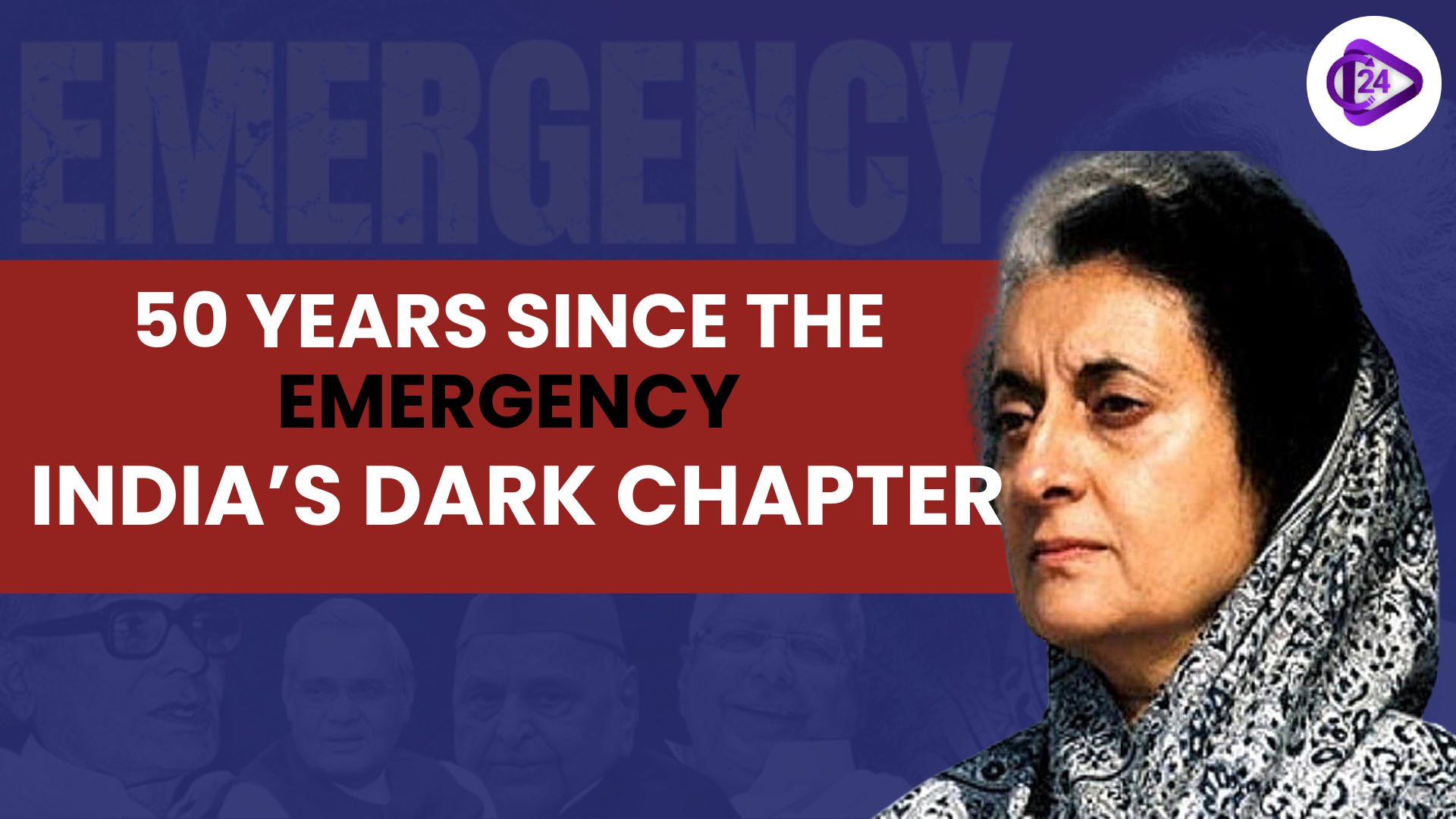
The Emergency declared by Indira Gandhi on June 25, 1975 was one of the worst times in Indian history when the government disregarded civil liberties, suppressed the press, made arrests on a massive scale and ruled by decree. During this 21 month period between June 25, 1975 and March 21, 1977 there was election suspension and mass repression. The article also discusses the history of the Emergency, the emergence of the JP Movement and the subsequent failure in the Indira Gandhi leadership in the 1977 elections. The Emergency still has an impact on the politics of India to date.
Context
-
The Emergency of 1975 was a historical repressive mark against civil rights and political liberty during the reign of Indira Gandhi.
-
Though it was oppressive in action, it changed the political scenario in India which eventuated in the formation of the Janata Party in 1977.
Key Points
Historical Context
-
In 1971 Indira Gandhi attained a huge mandate but had to deal with economic difficulties:
-
India- Pakistan War 1971
-
Severe droughts
-
Oil Crisis of 1973
-
-
The increasing misgovernance and levels of corruption caused citizens to be upset.
-
Jayaprakash Narayan had invoked the slogan of Total Revolution in JP Movement (JP).
-
Large student protest:
-
Navnirman Movement (Gujarat)
-
Railroad strike by George Fernandes
-
Declaring of Emergency
-
Date- June 25, 1975
-
Proclaimed by - President Fakhruddin Ali Ahmed on the advice of Indira Gandhi
-
Provisions:
-
Arrest of civil liberties and Fundamental Rights
-
Press censorship
-
Arrests of opposition leaders in large numbers
-
Such controversial actions as forced sterilization (in the influence of Sanjay Gandhi)
-
Political Consequences
-
Popular popular vindication
-
Elections of 1977: Janata Party is created and overcomes Congress
-
First non-Congress government in the Centre
-
Signified a short pause on the leading role of the Congress in Indian politics
Judicial and Constitutional policies
-
The 44 th constitutional Amendment (1978):
-
Altered emergency clause of saying internal disturbance to saying armed rebellion
-
Revived safeguard of Fundamental Rights
-
Provided new judicial review of proclamation of Emergency
-
Emergency legacy
-
National awakening and emerging of new leaders: Lalu Prasad Yadav, George Fernandes, Arun Jaitley
-
Reputational destruction to the Congress; Multi-party democracy sowed the seeds.
-
The experience added to the overall decline of Congress, which has led to its loss in 2014.
Conclusion
The issue of the Emergency of 1975 still remains one of the debatable events in Indian political history. It reduced civil liberty and the press freedom, but simultaneously started a political motion that eventually transformed the politics of power in India. After the Emergency period, there had been significant constitutional changes and political shifts, and this is why it can be regarded as a critical point of the development of democracy development in the country.



 Sai Pallavi, Anirudh, S.J. Suryah to Receive Kalaimamani Awards
Sai Pallavi, Anirudh, S.J. Suryah to Receive Kalaimamani Awards Bihar Governor Arif Mohammad Khan Inaugurates International Literature Festival 'Unmesh' in Patna
Bihar Governor Arif Mohammad Khan Inaugurates International Literature Festival 'Unmesh' in Patna Why Bihar Congress is Protesting the Adani Project: A Breakdown
Why Bihar Congress is Protesting the Adani Project: A Breakdown Education Ministry to Hold Virtual Buildathon Contest for Students from Classes 6 to 12
Education Ministry to Hold Virtual Buildathon Contest for Students from Classes 6 to 12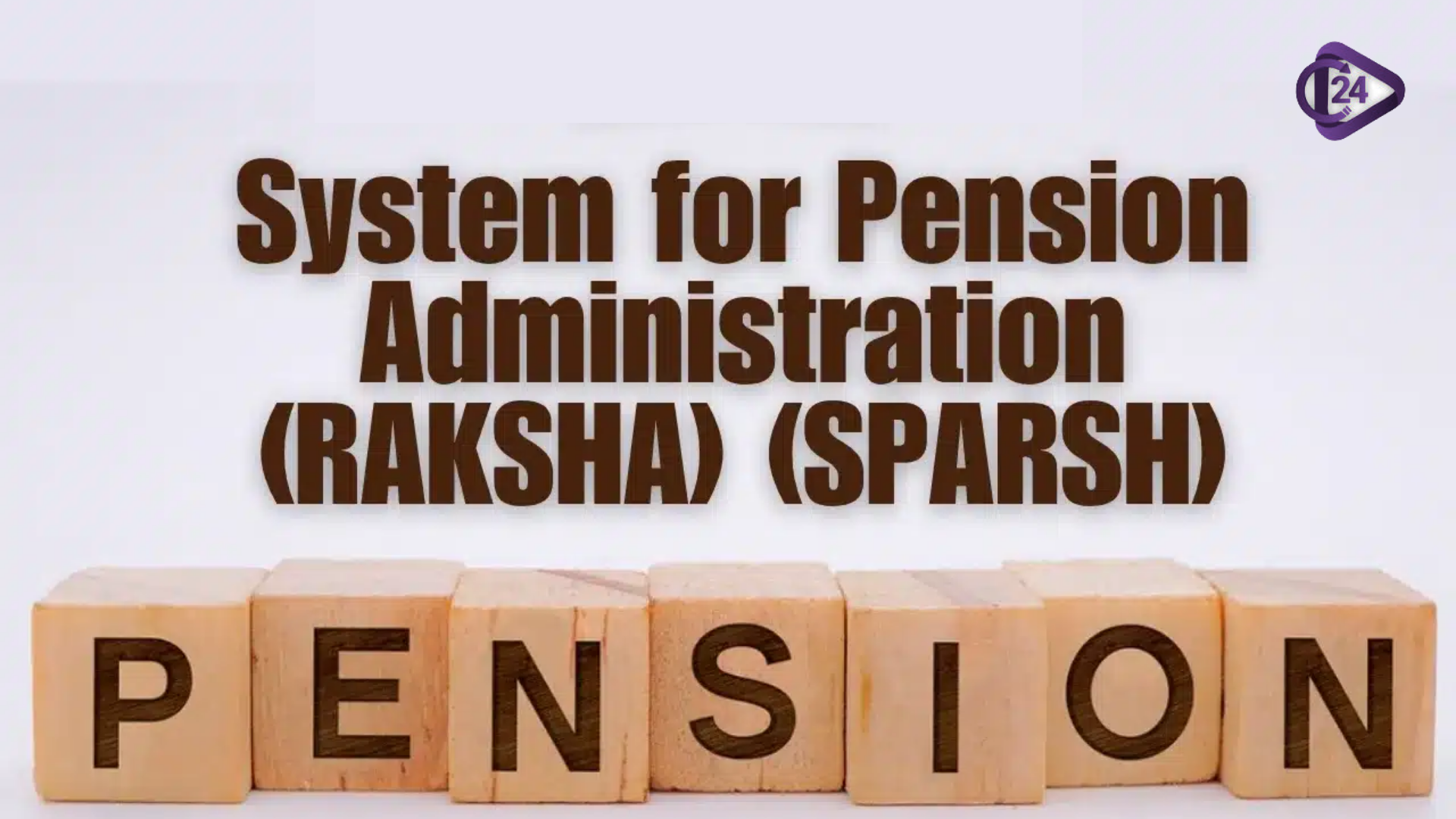 System for Pension Administration – Raksha (SPARSH)
System for Pension Administration – Raksha (SPARSH)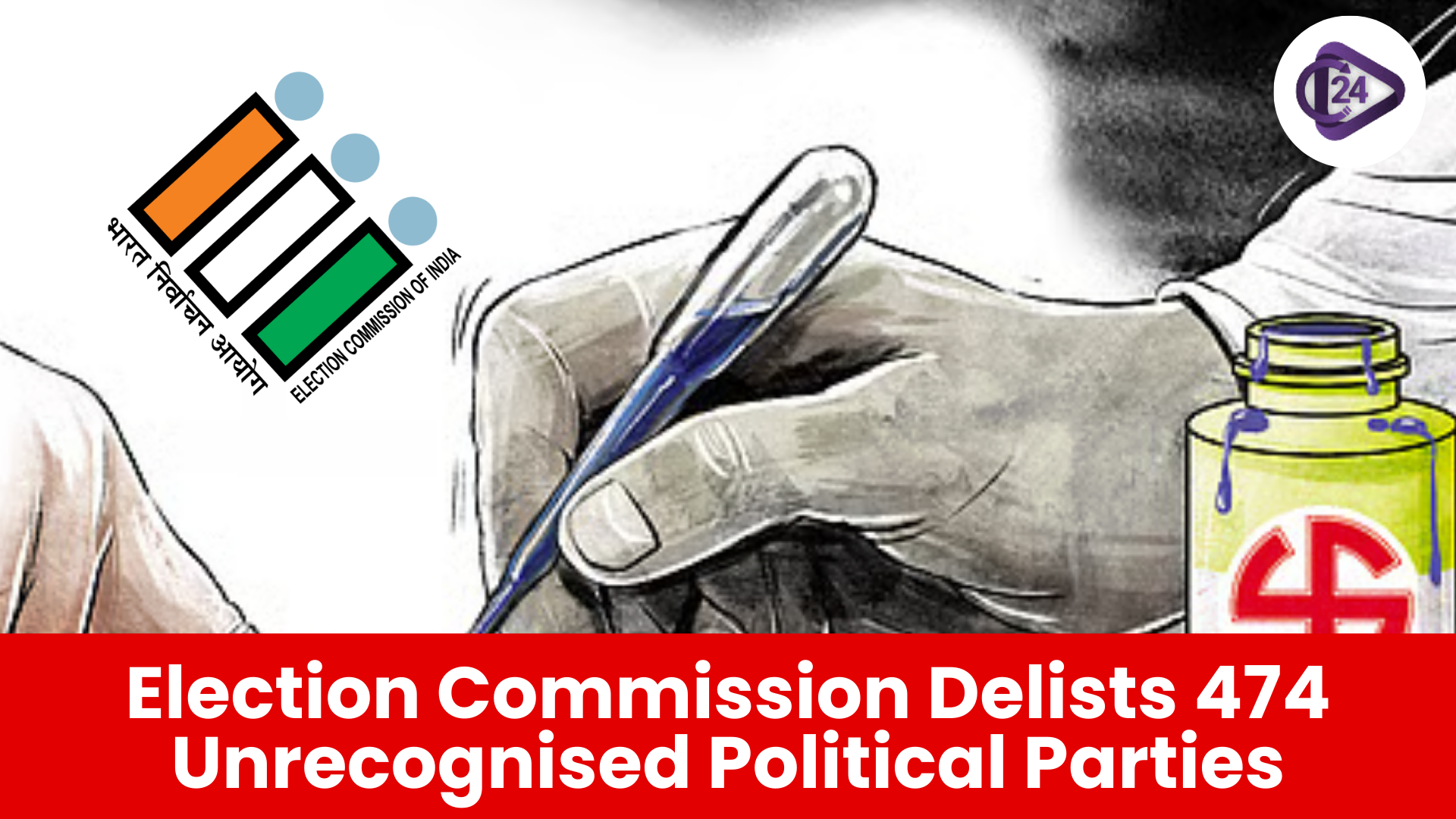 Election Commission Delists 474 Unrecognised Political Parties
Election Commission Delists 474 Unrecognised Political Parties Clean Plant Programme: India’s Step Towards Disease-Free Horticulture
Clean Plant Programme: India’s Step Towards Disease-Free Horticulture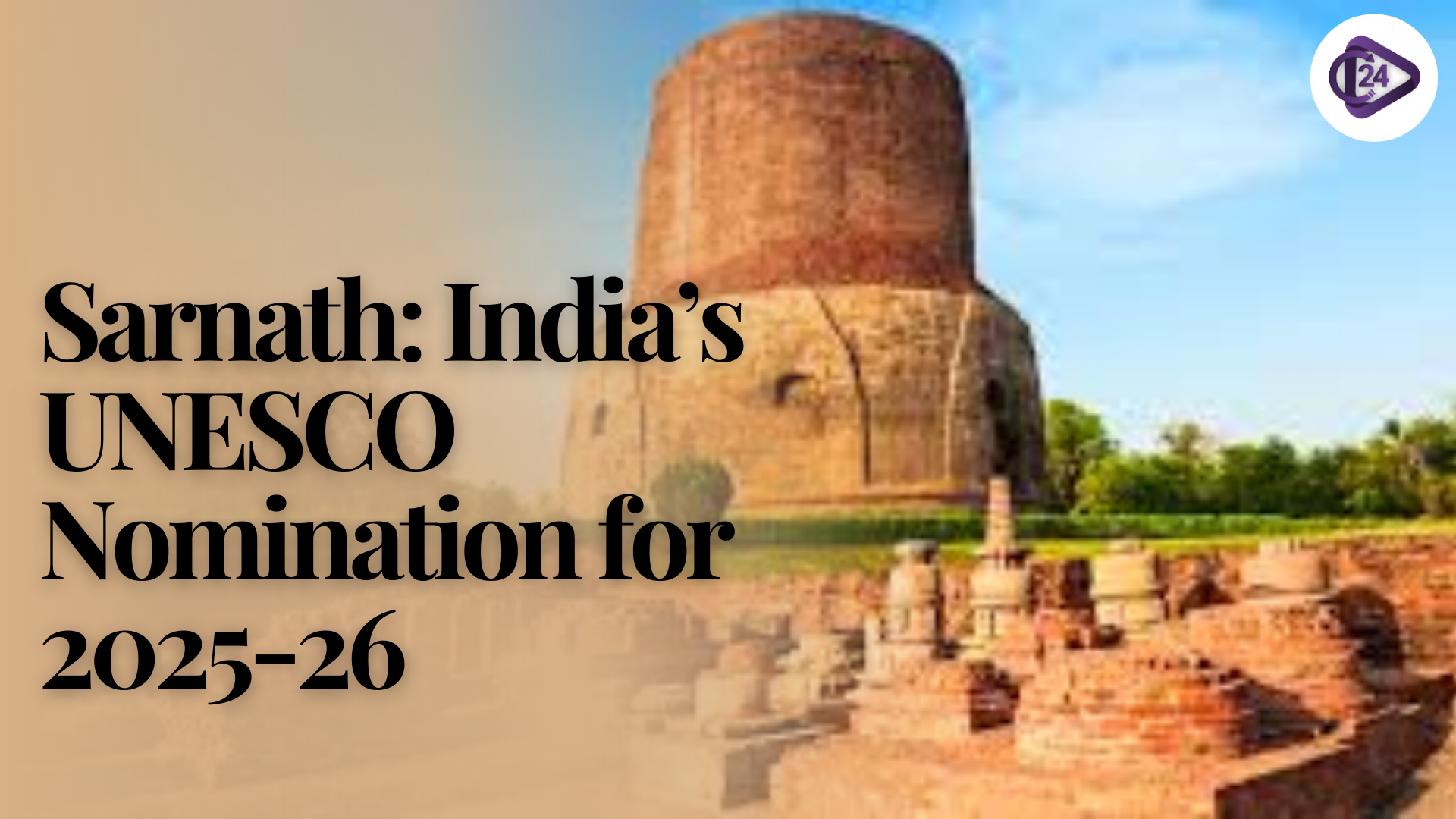 Sarnath Nominated for UNESCO World Heritage List 2025-26
Sarnath Nominated for UNESCO World Heritage List 2025-26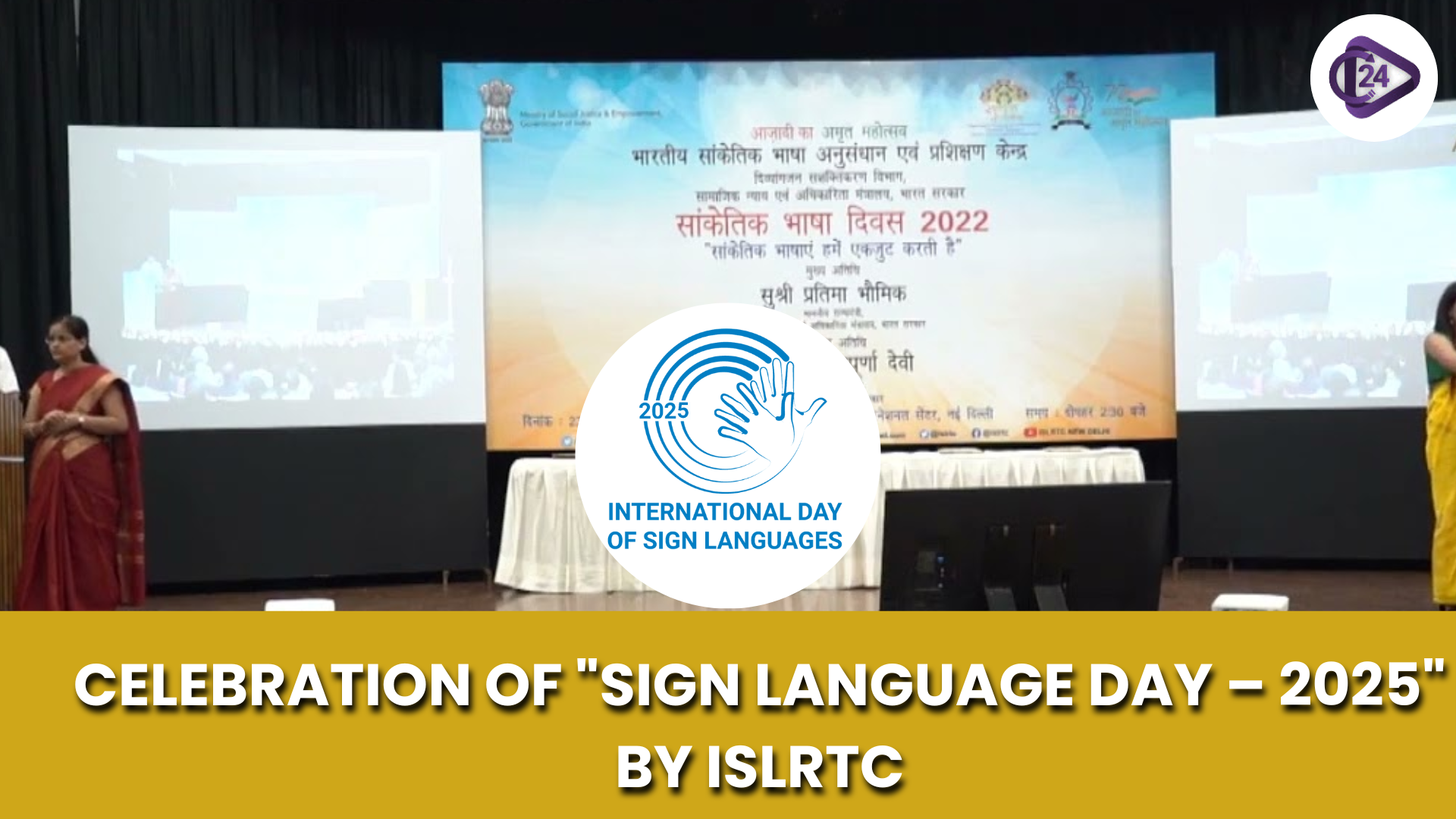 Sign Language Day 2025: ISLRTC Launches Key Initiatives for Deaf Inclusion
Sign Language Day 2025: ISLRTC Launches Key Initiatives for Deaf Inclusion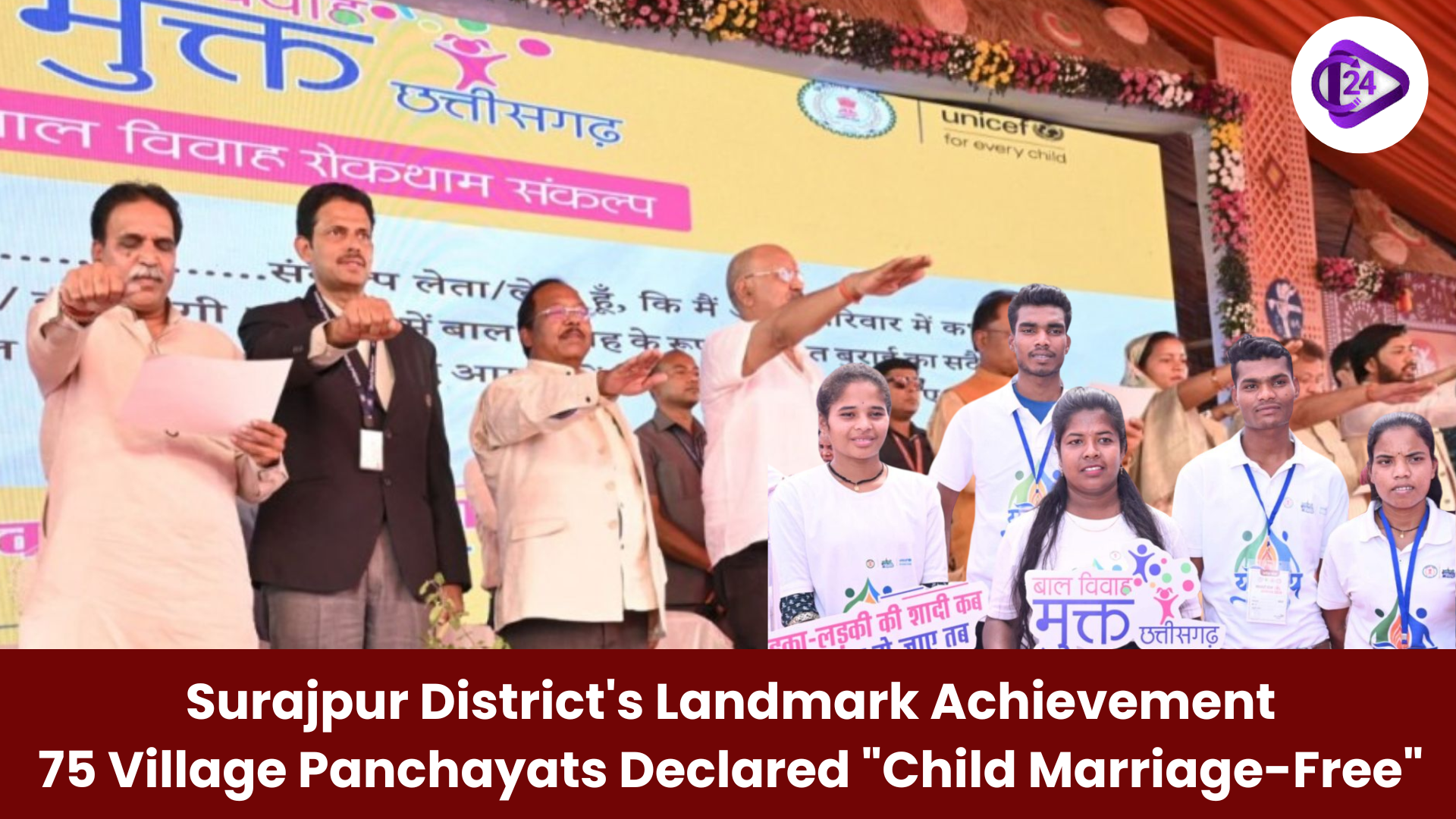 Surajpur Achieves Milestone: 75 Villages Declared Child Marriage-Free
Surajpur Achieves Milestone: 75 Villages Declared Child Marriage-Free






